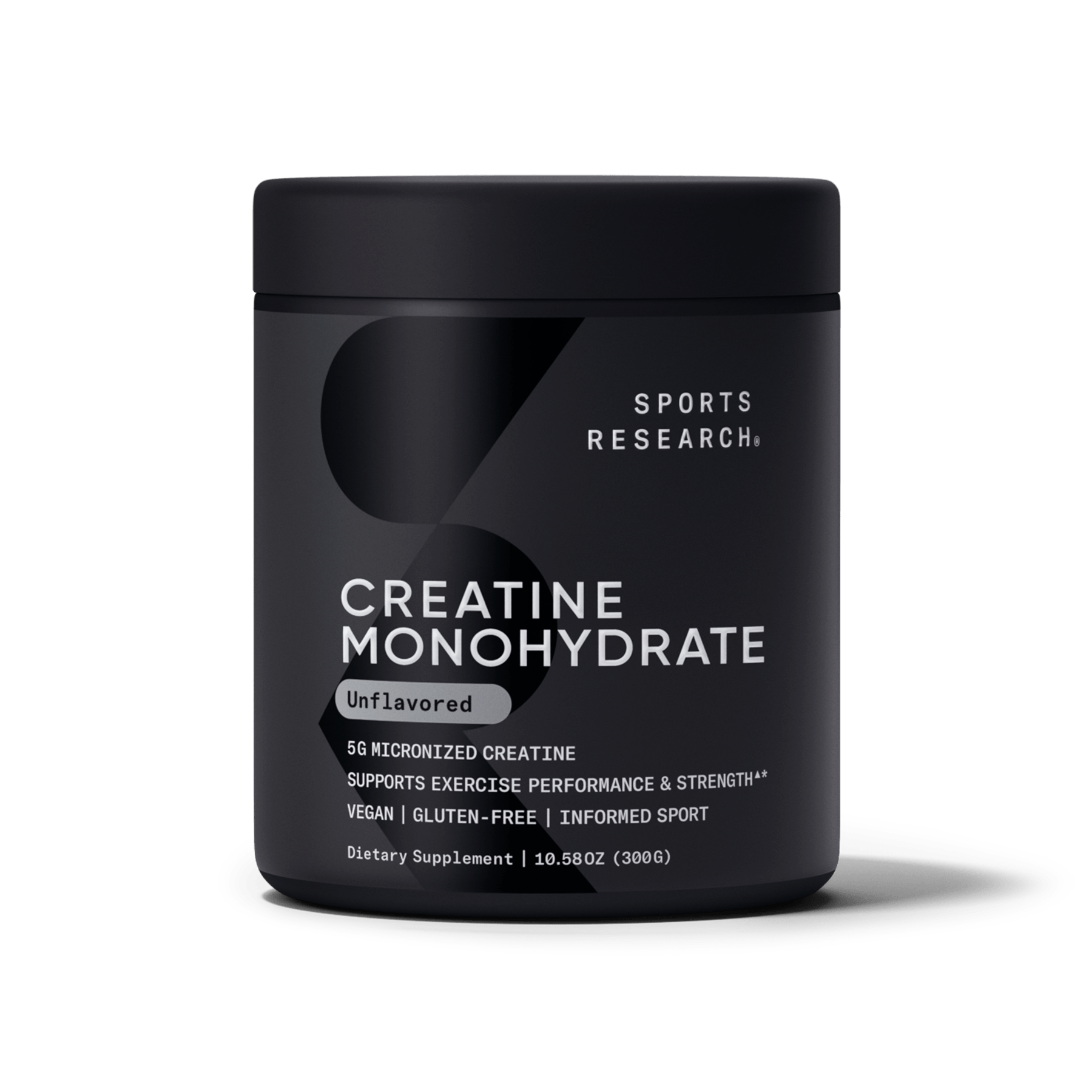Calcium is a mineral that has constantly been reiterated as vital as far back as we can remember. If you hear the word “calcium” and your thoughts immediately go to the “milk mustache” or you have a sour relationship with milk because it was force-fed at meal times, you are not alone. But you know the reason you were told to drink up; calcium is something that's so important for us, but it is not just something that only helped you as a child. Women and specifically, postmenopausal women can benefit from having this mineral in their life. This is such an essential nutrient but why? We will discuss everything you need to know about calcium, including its role, why it’s important for women, how much calcium women need on a daily basis, and many simple ways to increase your calcium intake.
The Role of Calcium in the Body
While calcium is associated with healthy bones and teeth, it also plays a number of important roles in the body. It plays a vital role in helping your muscles to contract, and regulate your heart’s rhythms and their functions, but also plays a vital role in blood clotting. In order for your body to perform a lot of these essential daily functions, you need a set amount of calcium in the tissues and blood.
If levels of calcium drop too low, the parathyroid hormone (PTH) signals the bones to release calcium into the bloodstream and activates vitamin D to improve the absorption of calcium in the intestines. When the body has enough calcium a hormone called calcitonin works to do the opposite, by lowering the calcium levels in the blood and stopping the release of calcium from the blood, signalling the kidneys to get rid of it via urination.
In adults, inadequate calcium is linked with conditions such as osteoporosis and osteomalacia, which are conditions marked by the softening of the bones which is a condition that impacts approximately 10 million people 80% of these are women.
Why Is Calcium Important for Women?
While calcium is a vital nutrient for everyone, it is particularly important for women and those born as women. Calcium plays a major role in a number of aspects of women's health, particularly because women have a lower bone density than men. Women have thinner and smaller bones than men, and due to the structural differences, women need more calcium than men to maintain their bone density.
Additionally, women go through a variety of hormonal changes throughout many parts of their lives, such as pregnancy, if they are breastfeeding, menopause, and the menstrual cycle. Each of these hormonal changes in the body involves many nutrients being pulled out of the body, which means that each of these fluctuations impacts the body’s ability to hold onto calcium.
The reason behind this is due to the decline in the hormone estrogen. When estrogen levels fall in the body, we are not able to retain our calcium sources. Women with a poor intake of dietary calcium will react against the hormones estrogen and progesterone. In premenstrual women, maintaining an optimum calcium level is vital, especially in younger women who have premenstrual symptoms.
How Much Calcium Do Women Need?
According to the National Institutes of Health, the recommended calcium intake for women between the ages of 19 and 50 is 1,000 mg per day. For women in menopause, during pregnancy, or lactating, the recommended daily amount is 1,200 mg per day. This is because of the lower estrogen levels that hinder calcium absorption and calcium loss via the urine.
Menopausal women are particularly at risk of losing more calcium and can lose 2% of their bone mineral density every year after menopause, which means they are at higher risk of bone density problems later in life, such as osteoporosis. Therefore, the recommended daily intake is designed to compensate for the lower calcium absorption rate.
The Importance of Calcium in Our Daily Lives
Calcium is an indispensable mineral for everyone's health. Calcium is responsible for vital functions in the body and works with other nutrients like vitamin D, therefore, women should be proactive about getting adequate calcium throughout their life to ensure their bone density increases. In fact, women as young as their 20s are recommended to increase their calcium, and women lose bone mass in later years, having a high-quality calcium supplement will make a big difference because it will pre-empt a lot of these problems.
Calcium plays a major role in preventing osteoporosis, helping to avoid PMS, but it can also play a major role in weight management and weight loss, because calcium binds with fat in the intestine, preventing the body from absorbing it and inhibiting the production of hormones that cause fat to accumulate in the body.
Additionally, calcium can prevent skin damage. White spots on the face of the skin are due to a deficiency in calcium, and a diet rich in calcium or calcium supplements can increase the natural glow in the skin, while also aiding skin repair.
The Easy Ways To Increase Your Calcium Intake
No matter who you are, it is important to have optimum levels of calcium in your body as it is such an important mineral for overall health. Here are some habits that everybody can benefit from to ensure that they hit their optimum levels of calcium.
Drink More Milk
Many people were encouraged to drink more milk as a child and it is something that can still help you as you get older. Just one glass of milk will contain 300 mg of calcium and is an incredibly diverse foodstuff. If you don't like drinking milk, you can put it in cereals, soups, smoothies, or even in your scrambled eggs. If you do not like milk there are a wide variety of calcium-rich milk alternatives on the market. There are many plant-based drinks that are fortified with calcium, as well as numerous oat milk, and almond milk, which can contain up to 450 mg of calcium with each serving.
Spread Your Calcium Intake Throughout the Day
Many people may try to get all the calcium within one meal, but larger doses are not absorbed as effectively. Doses less than 500 mg are better absorbed, so opting to have a 450 mg serving three times a day means you will have more calcium uptake in your body. When you eat good sources of calcium spread throughout the day, this is going to improve your overall calcium absorption.
Find Non-Dairy Sources
Calcium is not just present in dairy, but there are a wide variety of non-dairy sources of calcium. These include the following:
• Pulses, such as beans and lentils. One cup of beans can contain almost 150 mg of calcium.
• Leafy greens. swiss chard, spinach, kale, and collard greens can contain between 150 mg to 250 mg of calcium with every cooked cup.
• Certain fish. Fish such as salmon and sardines are full of calcium because of their edible bones. For example: 3 oz. of salmon has approximately 180 mg of calcium and is high in protein, which is vital to help women maintain their bone density.
Choose a Calcium Supplement
If you do not like calcium sources, whether it is soya milk or green leafy vegetables, you can choose a calcium supplement. You may want to consider a calcium supplement if you have any of the following issues:
• Digestive issues that decrease your ability to absorb calcium such as coeliac disease or inflammatory bowel disease.
• Receiving long-term treatment with corticosteroids.
• Are consuming large amounts of sodium or protein, which may cause your body to excrete more calcium.
• Are lactose intolerant and need to limit dairy products.
• On a vegan diet.
In these situations, calcium supplements can help you to meet your requirements. The benefit of having a calcium supplement can also contain vitamin D or magnesium. Vitamin D is particularly useful as it can help your body absorb calcium more effectively. Without enough vitamin D, we cannot form calcitriol in our bodies, which is also known as the “active vitamin D.” Therefore, having a high quality supplement with vitamin D or ensuring you take vitamin D alongside your calcium can ensure your body is absorbing it properly.
Check Your Calcium Levels
If you are concerned you're not getting enough calcium, it is important to get your levels checked by a medical professional before you start increasing your calcium intake. Depending on your age, your doctor may also want to check your bone density to enquire if you are running the risk of osteoporosis.
Conclusion
Calcium is a mineral we all know is vital for our body. Calcium is not just something that benefited us as children, but it can help us throughout our entire lives. With women being more prone to bone density issues and are at risk of losing more nutrients in their body, whether it's during premenopause, pregnancy, or later in life, women should prioritise calcium in their diets.






